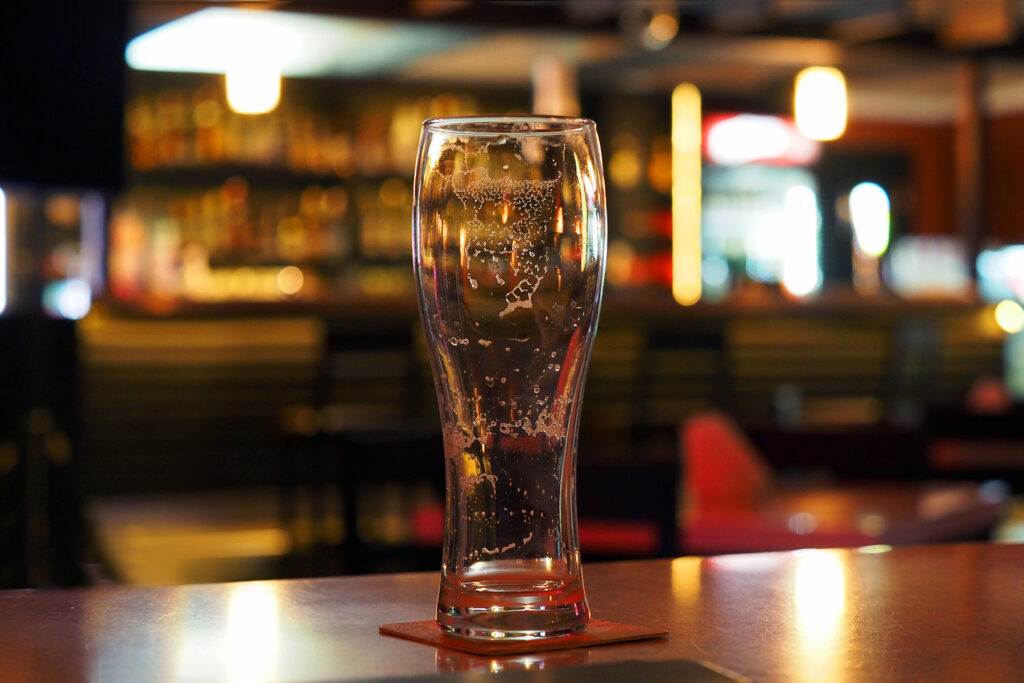As a leading alcohol rehab center in Woodland Park, NJ, BlueCrest Recovery is dedicated to providing holistic and evidence-based addiction treatment. A common concern among our clients and their loved ones is the experience of brain fog after drinking. Our knowledgeable team can help you learn more about alcoholic brain fog and other dangers of alcohol addiction.
If you or a loved one are struggling with alcohol addiction, remember that help is available. In our comprehensive program, we integrate cognitive-behavioral therapy (CBT), dialectical behavior therapy (DBT), yoga, meditation, and 12-step educational groups, aiming to treat the whole individual. Call 888.292.9652 or contact our team online to find out more about abuse of alcohol and brain fog.

What to Know About Alcohol Abuse and Addiction
Alcohol abuse and addiction impact millions of people worldwide, causing health impairments and life disruptions. When individuals consume alcohol in amounts or ways harmful to themselves or others, it constitutes alcohol abuse. This damaging use can lead to alcohol addiction, also known as alcoholism, where the individual has a physical or psychological compulsion to drink alcohol.
Long-term alcohol addiction can lead to severe health complications, including:
- Liver disease
- Heart problems
- Various types of cancer
- Mental health disorders
- Alcoholic brain fog
These risks escalate with the amount of alcohol consumed and the length of time the person has been abusing alcohol. Among these dangers, the occurrence of brain fog after drinking is one that we will focus on in this article.
What to Know About Alcohol and Brain Fog
Several factors contribute to the development of alcoholic brain fog:
- Dehydration – Alcohol is a diuretic, which means it leads to more frequent urination. This can cause dehydration, affecting the brain’s function and resulting in brain fog.
- Interrupted sleep patterns – Although alcohol may help individuals fall asleep, it often disrupts the sleep cycle, leading to poor quality sleep and subsequent brain fog.
- Nutrient depletion – Alcohol can interfere with the body’s absorption of nutrients, including those critical for brain health. This nutrient depletion can contribute to feelings of brain fog.
- Alcohol withdrawal – For those struggling with alcohol addiction, brain fog can be a symptom of withdrawal when they stop drinking.
Brain fog after drinking is not uncommon. This condition, often described as a feeling of mental confusion or lack of mental clarity, can be a concerning side effect of alcohol consumption. Brain fog can manifest as forgetfulness, a feeling of disorientation, difficulty concentrating, or feeling slow or cloudy.
What to Do When Experiencing Brain Fog After Drinking
If you are experiencing brain fog after drinking, it is crucial to take steps toward recovery. These steps may include:
- Seeking medical advice – A healthcare professional can provide guidance and resources to help manage symptoms and address any underlying issues related to alcohol use.
- Staying hydrated – Drinking water can help mitigate the effects of dehydration caused by alcohol.
- Eating a balanced diet – A diet rich in fruits, vegetables, lean proteins, and whole grains can provide the nutrients necessary for brain health.
- Seeking support – Reach out to family, friends, or a support group for emotional assistance during this challenging time.
Brain fog may lead to an overdose situation. Alcohol overdose is a serious situation that requires immediate medical attention. If you suspect someone has overdosed on alcohol, call 911 immediately. While waiting for medical help, try to keep the person awake and sitting up, give them water if they can drink it, and most importantly, do not leave them alone.
How Long Does Alcohol-Induced Brain Fog Last?
The duration of brain fog after alcohol use varies depending on factors such as the amount and frequency of alcohol consumed, overall health, and the presence of underlying mental health conditions. For some, symptoms may clear within a few days of abstinence; for others, it can take weeks or even months. Chronic alcohol users may experience longer-lasting effects due to structural changes in the brain. Seeking professional help can accelerate the recovery process by addressing nutritional deficiencies, improving sleep, and supporting mental health during detox and rehabilitation.
Why Alcoholic Brain Fog Shouldn’t Be Ignored
While brain fog may seem like a temporary inconvenience, it can be an early warning sign of more serious neurological and cognitive issues caused by alcohol misuse. If left unaddressed, brain fog can evolve into chronic memory loss, reduced cognitive function, and irreversible brain damage. These changes can significantly affect your work, relationships, and overall quality of life.
Alcohol directly affects the central nervous system and impairs the brain’s ability to transmit signals efficiently. Over time, repeated alcohol exposure can shrink brain tissue, particularly in the frontal lobe—the area responsible for decision-making, problem-solving, and emotional regulation. As a result, what starts as occasional confusion or difficulty concentrating can escalate into long-term cognitive deficits.
Mental health issues such as anxiety and depression can also accompany alcoholic brain fog. Because alcohol interferes with neurotransmitters like serotonin and dopamine, it can worsen mood disorders or mask underlying mental health problems, creating a cycle of dependence and mental exhaustion.
Ignoring these symptoms not only delays recovery but can also compound the damage. At BlueCrest Recovery, we emphasize the importance of early intervention. Whether you’ve been drinking heavily for years or recently noticed mental fog after social drinking, our team can help you assess your symptoms, understand your risks, and take proactive steps toward healing.
Enroll in Alcohol Rehab at BlueCrest Recovery
BlueCrest Recovery offers a range of rehab programs designed to treat alcohol addiction and co-occurring disorders. Our dedicated team is committed to providing you with the care and support you need throughout your recovery journey. Contact our team online or call 888.292.9652 today to learn more about our services and take the first step towards a healthier, alcohol-free life. Remember, you’re not alone in this fight, and recovery is possible.


















